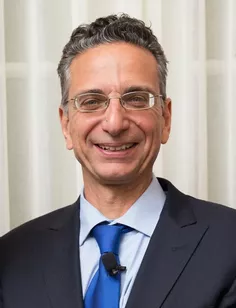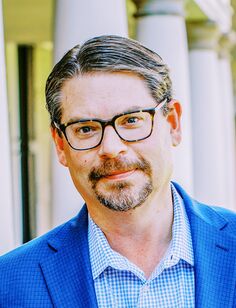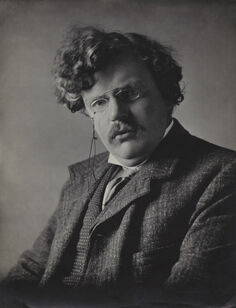More Radical than Roe: The New Absolutism on Abortion
The 1973 Supreme Court decision in Roe v. Wade, which struck down the pro-life statutes of every state in the Union, was described by John Hart Ely as “not constitutional law,” that is, he wrote, “this super- protected right is not inferable from the language of the Constitution.” Sweeping as Roe v. Wade was –and the precedent has been used to strike down literally hundreds of pro-life laws since 1973 - today’s advocates for unlimited abortion work daily to expand its boundaries to further deny protection to children on the threshold of and even after birth, to compel taxpayer support of all abortions, to deny informed consent and parental notice, and to distribute abortion pills for “do-it-yourself” use, a practice that will make homes and dormitories the 21 st century analog of back alleys.
A panel of distinguished scholars and researchers will discuss these themes and describe how the new radicalism on abortion transcends anything America has seen before. A half century after Roe, U.S. abortion policy continues to speed on a collision course with itself. On the one hand, human life can be and is being saved at ever younger gestational ages through the wonders of perinatal medicine, and dozens of states are acting anew to recognize these life-affirming practices and precepts. On the other hand, the campaigns to nullify the legal status of the innocent and vulnerable unborn grow increasingly raw and brutal across a number of states and now the Biden-Harris Administration.
Recommended Reading on the topic of Abortion
In Necessity and Sorrow: Life and Death in an Abortion Hospital by Magda Denes
Studies Purporting to Show Safety of Telehealth Abortions Are Unpersuasive, Michael New, The Daily Signal, Published April 22, 2021
How the Legal Status of Abortion Impacts Abortion Rates, Michael New, Charlotte Lozier Institute, Published May 23, 2018
Abortion Court Cases
Abortion Cases in The Higher Federal Courts: Clarification Needed After June Medical, Mary Harned, Charlotte Lozier Institute, Published April 19, 2021
Chemical Abortion
Deaths and severe adverse events after the use of mifepristone as an abortifacient from September 2000 to February 2019. Issues Law Med. 2021;36(1):3-26. Aultman KA, Cirucci CA, Harrison DJ, Beran BD, Lockwood MD, Seiler S.
FDA’s race to defend women from dangerous abortion drugs. Mary Harned, Charlotte Lozier Institute, On Point 50.Published August 19, 2020
Immediate complications after medical compared with surgical termination of pregnancy. Obstet Gynecol. 2009;114(4):795-804. Niinimäki M, Pouta A, Bloigu A, et al.
The “no-test medication abortion” protocol: experimenting with women’s health. Ingrid Skop, Charlotte Lozier Institute, On Point 49. Published July 30, 2020
Late-Term Abortion
Late-term abortion and medical necessity: a failure of science. James Studnicki , Health Services Research and Managerial Epidemiology, April 9 2019
Born-Alive Abortion Survivors
Questions and answers on born-alive abortion survivors. Charlotte Lozier Institute, Published April 12, 2021. Updated April 14, 2021.
Publicly Funded Abortion
The Hyde Amendment is constitutional and remains critically important. Mary Harned, Charlotte Lozier Institute, Published April 15, 2021
Analyzing the impact of the Hyde Amendment. Mary Harned, Charlotte Lozier Institute, Published September 27, 2016. Updated July 21, 2020.
Mary E. Harned, J.D., served as an investigative counsel with the Select Investigative Panel of the U.S. House Energy and Commerce Committee, where she coauthored reports examining the fetal tissue industry. Formerly, Mary was staff counsel with Americans United for Life (AUL), where she authored numerous articles for Defending Life (AUL’s annual publication), op-eds, blog posts, congressional and state legislative testimony, and federal administrative comments. She also crafted original model legislation and supporting materials to aid state and federal legislators in advancing policy objectives within her expertise. Prior to this, Mary served as chief counsel to U.S. Senator Tom Coburn (R-OK), where she advised and assisted Dr. Coburn on policy issues within the Senate Judiciary Committee’s jurisdiction and on all judicial nominations. She also served as counsel to U.S. Senator Jeff Sessions (R- AL) on the Senate Judiciary Committee.
Michael J. New, Ph.D., is a research associate in The Bush School of Business at The Catholic University of America in Washington, D.C., and a fellow with the Witherspoon Institute, Princeton, New Jersey. Dr. New has both a Ph.D. in political science and a master’s degree in statistics from Stanford University. Dr. New worked as a postdoctoral researcher at the Harvard-MIT Data Center. He later taught at the University of Alabama, the University of Michigan, Dearborn, and Ave Maria University. Dr. New researches and writes about the social science of pro-life issues.
Tessa Longbons is a research associate with the Charlotte Lozier Institute, where she writes on state and national abortion statistics, tracks abortion trends, and assists the CLI data analytics department with research projects. She is the researcher and writer on CLI’s series of summaries of annual state abortion reporting practices and results. Prior to joining CLI, Tessa got her start in pro-life research with the Family Research Council. Originally from Illinois, Tessa now lives in Washington, D.C. She earned her B.A. in Communications from Thomas Edison State University.





